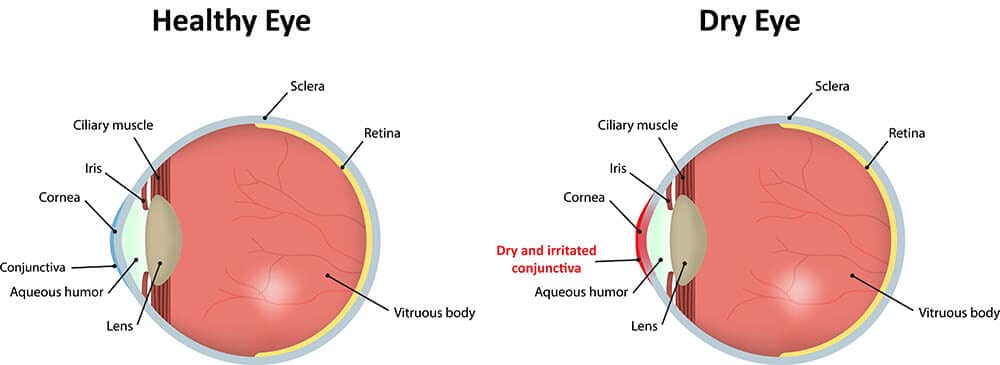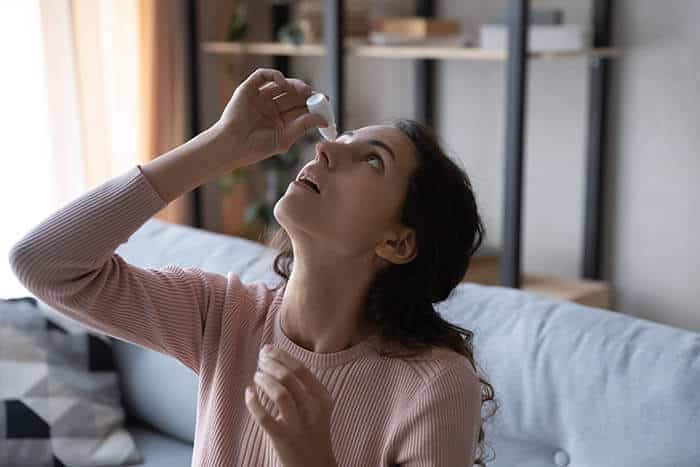What is Dry Eye?
On its most basic level, dry eye is the result of tear glands failing to produce enough tears. Eye health depends on tears, as they act as both a lubricant and cleanser. Tears also help by cleaning away dust, debris, and other foreign objects in the eye. What’s more, tears also serve as an antibiotic that sterilizes microorganisms on the surface of the eye. If the eye cannot produce enough tears, a wide range of problems can result.
- Pain
- Discomfort
- Increased vulnerability to infection

Our leading ophthalmology practice offers a variety of eye care treatments ranging from preventive eye care to laser eye surgery. We always strive to customize treatment to suit each patient’s unique needs. Out of all the eye conditions we treat at our office, dry eye is one of the most common.
Symptoms of Dry Eye
Getting dry eye care involves knowing the symptoms. You could be experiencing dry eye if you experience the following:
- Red eyes
- Itchy eyes
- Burning or stinging in the eyes
- Feeling of sand or grit in the eyes
- Light sensitivity
- Tired eyes
- Irritation from contact lenses
- Blurred vision
Dry Eye and Other Conditions
Various underlying conditions can cause dry eye symptoms. It is a common feature in Sjogren’s syndrome and other autoimmune diseases. It is important to discuss these conditions with your ophthalmologist as well as your primary care provider since treating dry eyes tends to involve treating underlying conditions as well.
Dry Eye Treatment
For many people, dry eyes are little more than a passing nuisance. The vast majority of dry eye cases can be treated using over-the-counter eye lubricants and eye drops. However, if the body chronically fails to produce enough tears to properly protect the eye, it can develop dry eye syndrome – a more constant, extreme version of dry eyes.
One option for dry eye syndrome is Restasis eye drops, which is a prescription formula that works to both lubricate the eye and encourage tear production. Another treatment option is to use lacrimal plugs (also known as punctal plugs) which fit into the tear ducts to prevent tears from draining off the eye as quickly. In extreme cases of dry eye, we may even recommend surgically closing the tear ducts.
Dry eyes often result from environmental conditions, so taking steps to protect the eyes – like wearing sunglasses or using humidifiers – can help manage dry eye symptoms. Nutritional deficiencies can also cause the problem, which may mean supplements are needed as a treatment.

Finally, a few of the other most common treatments for dry eye include:
- Topical eye drops
- Steroid eye drops
- Oral nutrition supplements
- Oral antibiotics
- Specially-formulated drops like Oasis Tears and LidHygenix
Contact Us Today
For most people, dry eyes are little more than an occasional annoyance. But if dry eyes start to be a problem for you, our ophthalmologists can help. Contact us today to learn more about our eye clinic and to schedule an appointment to come in for a check-up. We look forward to hearing from you, and we’re excited to help you achieve a gorgeous new smile!
